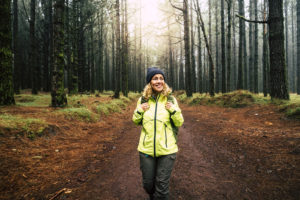 What can you do to get better sleep? Poor quality sleep is becoming the norm in America. 70% of adults say they get insufficient sleep at least once per month, while more than 10% report nightly sleep troubles.
What can you do to get better sleep? Poor quality sleep is becoming the norm in America. 70% of adults say they get insufficient sleep at least once per month, while more than 10% report nightly sleep troubles.
According to SleepHealth, 50–70 million Americans are affected by sleep-related problems.
Advertisement
These problems run deep. A lack of quality sleep can have an immediate effect on your hormones, brain function, and physical capabilities. It can lead to weight gain and a weaker immune system, which can boost your risk for illness and disease.
On the other hand, improving sleep quality can result in several benefits. That’s why it is just as important as diet and exercise to contribute to overall health.
Getting better sleep can seem like a daunting task. But just two hours per day could make a significant difference in both sleep duration and quality. All it requires is getting outside or exposing yourself to bright light.
Greater exposure to bright light during the day is associated with longer and better sleep. It can help keep your circadian rhythm—the body’s natural clock—stay in check, helping your hormones, brain, and body function properly.
Data indicates that natural sunlight promotes a healthy circadian rhythm to improve daytime energy and sleep patterns. One study found that just two hours of daytime bright light exposure was able to extend sleep duration by two hours and enhance the quality of sleep by 80% in older adults.
Another study found that daytime light exposure significantly improved sleep in insomniacs and helped them fall asleep 83% faster.
Advertisement
The studies were published in the International Journal of Geriatric Psychiatry and the Journal of the American Geriatric Society, respectively.
If you’re able, getting outside every day for some natural light might lead to better sleep. A morning walk, or eating your breakfast outside, could be a worthwhile strategy. If that’s not possible, sit near an open window so the light can shine in.
Getting intermittent hits of bright light throughout the day is likely the most practical approach, so going for walks, reading, gardening, or running errands during the day can all boost exposure. If you can’t get outside, sit by a window or bright light bulb.
